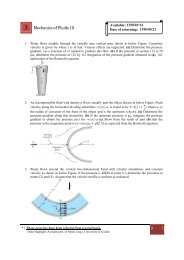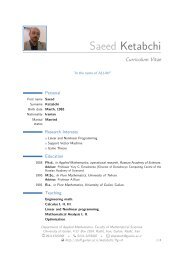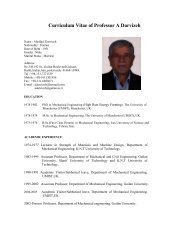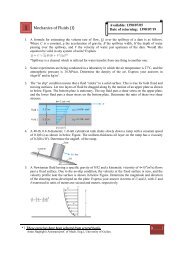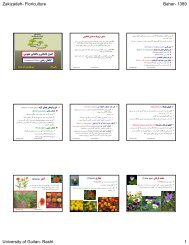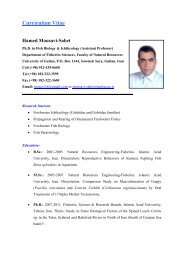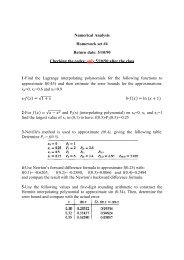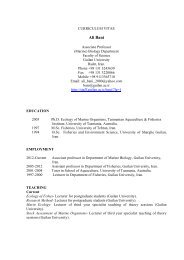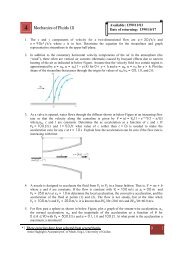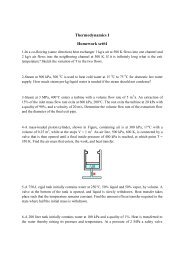Medical Tourism in Developing Countries
Medical Tourism in Developing Countries
Medical Tourism in Developing Countries
- No tags were found...
You also want an ePaper? Increase the reach of your titles
YUMPU automatically turns print PDFs into web optimized ePapers that Google loves.
Plastic Surgery is Not Peanuts ● 35classic situations of foreign trade and direct foreign <strong>in</strong>vestment dependency.”58 The more dependent the dest<strong>in</strong>ation countries, the weaker theirbarga<strong>in</strong><strong>in</strong>g position, and therefore, the greater the preconditions set byforeign <strong>in</strong>vestors. The chief of these is repatriation of profits, as hotel andrestaurant bus<strong>in</strong>esses want complete control over their profits. When profitsare repatriated, dest<strong>in</strong>ation countries experience leakages and negative externalitiesthat often outweigh the positive effects of multipliers and l<strong>in</strong>kages.In addition to profit repatriation, other aspects of foreign <strong>in</strong>vestment <strong>in</strong>tourism also produce leakages, <strong>in</strong>clud<strong>in</strong>g imported skills, expatriate labor,imported commodities and services, imported technology and capitalgoods, and <strong>in</strong>creased oil imports. Leakages reduce the impact of tourism oneconomic development and so raise questions about who the beneficiariesof tourism really are.In addition to foreign <strong>in</strong>vestment, tour operations are also conducive toleakages and other negative externalities. Most Western tourists travelto develop<strong>in</strong>g countries as part of a prepaid package that is paid up front,to Western tour operators. When a holiday is all-<strong>in</strong>clusive, only a t<strong>in</strong>yportion of tourist expenditure reaches the dest<strong>in</strong>ation country (John Leafound that only 40–50 percent of the tour retail price rema<strong>in</strong>s <strong>in</strong> the hostcountry; if both airl<strong>in</strong>e and hotels are foreign owned, this number drops to22–25 percent. 59 ).Such evidence of dependency <strong>in</strong> LDC tourist <strong>in</strong>dustries led some scholarsto state that the relations between Western states and develop<strong>in</strong>g countriesare fundamentally no different from what they were at the peak ofcolonialism. The volatility of demand and the outflow of profits are rem<strong>in</strong>iscentof the disadvantages of monocrop economies <strong>in</strong> which develop<strong>in</strong>gcountries exported raw materials and crops despite decreas<strong>in</strong>g terms oftrade. Indeed, to the extent that LDCs have replaced raw materials withtourism, they are no less dependent on the West than they were previously.Accord<strong>in</strong>g to Cynthia Enloe, “<strong>Tourism</strong> is be<strong>in</strong>g touted as an alternative tothe one-commodity dependency <strong>in</strong>herited from colonial rule. Foreign sunseekersreplace bananas. Hiltons replace sugar mills.” 60 By putt<strong>in</strong>g all theirdevelopment eggs <strong>in</strong> the tourism basket, are LDC authorities depend<strong>in</strong>g onthe West to provide them with an eng<strong>in</strong>e of growth?Plastic Surgery is Not PeanutsWhile the tourist <strong>in</strong>dustry <strong>in</strong> many develop<strong>in</strong>g countries may <strong>in</strong>deed fosterdependency relationships, medical tourism is an exception. It does not raisethe dependency concerns that dependency theory so clearly del<strong>in</strong>eates. Ash<strong>in</strong>ted <strong>in</strong> chapter 1, medical tourism <strong>in</strong> the countries under study tends to



